Charles Derricotte III
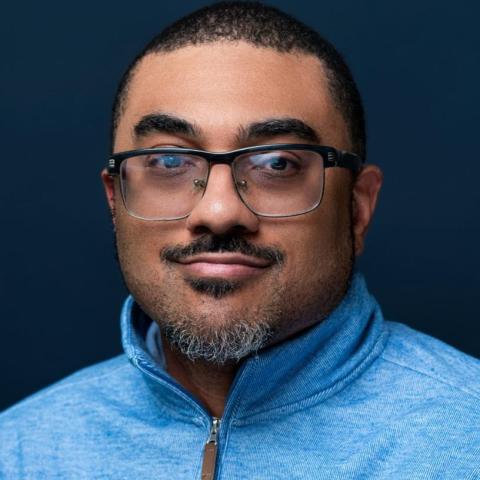


Simon Zhang is a research scientist in the Institute for People and Technology. Zhang graduated with a degree in Industrial Design at Georgia Tech in 2024. As a frontend engineer and UX designer, Zhang currently supports AI-CARING (AI Institute for Collaborative Assistance and Responsive Interaction for Networked Groups) and GT Research Connect, a career platform to connect research faculty with funding. They focus on building interfaces gounded in people's needs and crafting robust modern web applications. Outside of work, their interests lie in color systems, typography, and Asian American studies.

At first glance, Kristina Chatfield wasn’t a typical sustainability hire at Georgia Tech.
She was a business management consultant for a law firm who had also helped a national survey data firm with their data crunching. Higher ed was “like a different planet,” she recalls.
Chatfield realized early on that she could apply her management and operations background to any field. “You can’t run any successful organization unless you have operational efficiency and program and project management.” Without them, she says, “Things don’t work properly.”
But equally important was her commitment to learning about academia and sustainability, areas that were not in her wheelhouse a decade ago. With support from Jennifer Hirsch, senior director of SCoRE (and formerly of SLS), Chatfield embraced both with gusto.
“I’ve learned to approach sustainability from a holistic standpoint,” Chatfield explains, noting that sustainability isn’t just about the environment or systems — it’s primarily about the people.
“If you have a passion for community engagement and sustainability, there’s a lot of commonality you can find with people from all different persuasions. As human beings, we mostly care about the same things.”
“Kris is a master at setting up and managing complex operational and financial systems, and she is passionate about sustainability, communities, and Georgia Tech. This combination, together with her decade of management experience in SLS and SCoRE, makes her perfect for her new leadership role,” says BBISS Executive Director Beril Toktay.
Chatfield says a key highlight of her work in sustainability has been connecting community organizations and nonprofit partners with the Institute through the SCoRE summer internship program. Georgia Tech students are partnered with community organizations throughout Atlanta. Now in its eighth year, the program allows students “to learn about the social aspects of sustainability, innovation, and the UN Sustainable Development Goals in the context of actual work that’s being done in the Atlanta area,” Chatfield says. “Partners benefit tremendously because the program expands their capacity by having these amazing Georgia Tech students working for them.”
Chatfield says the internship program often serves as the first interaction partners have with Georgia Tech. “It opens the door to a much broader and deeper relationship.”
In her free time, Kris enjoys her family life with five adult children, and soon she will welcome her third grandchild. “Being a grandparent is the best thing ever,” she says.
She also enjoys playing pickleball with her husband and traveling. With one of her sons about to be stationed in Germany with the Army, she hopes to combine her passions of travel and family time.
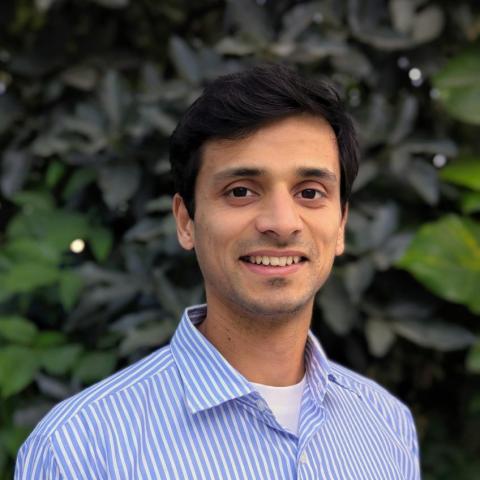
Karthik Menon is an Assistant Professor with a joint appointment in the Woodruff School and the Coulter Department of Biomedical Engineering. Menon graduated with a Ph.D. in Mechanical Engineering from Johns Hopkins University in 2021, where his doctoral work focused on the flow physics of fluid-structure interactions and vortex-dominated flows. Before joining Georgia Tech, he was a postdoctoral scholar in the Department of Pediatrics and the Institute for Computational and Mathematical Engineering at Stanford University. At Stanford, he worked on computational methods for accurate patient-specific cardiovascular blood flow simulations and uncertainty quantification. Menon’s broad research interests include fluid mechanics, computational modeling, and data-driven methods. His research aims to advance interdisciplinary technology in a wide range of healthcare, engineering and energy applications. Fluid dynamics is central to some of the biggest challenges and opportunities in these domains – such as personalized treatments for cardiovascular disease, extracting renewable energy from flowing water and wind, and developing bio-mimetic flying and swimming robots. Menon’s work tackles these challenges by uncovering new physics and combining high-performance computing with data-enabled techniques.
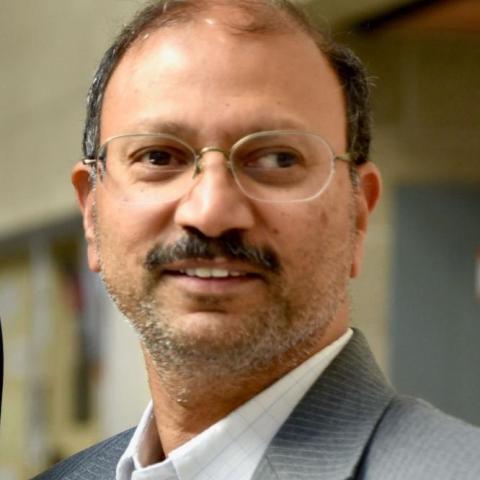
Dr. Pamidighantam is associate director of the ARTISAN center under the Institute for Data Engineering and Science at the Georgia Institute of Technology. Dr. Pamidighantam had been a senior research scientist at Indiana University, Cyberinfrastructure Integration Research Center and NCSA at the University of Illinois at Urbana-Champaign supporting computational chemistry and science gateways development in support of molecular sciences faculty.
computational chemistry
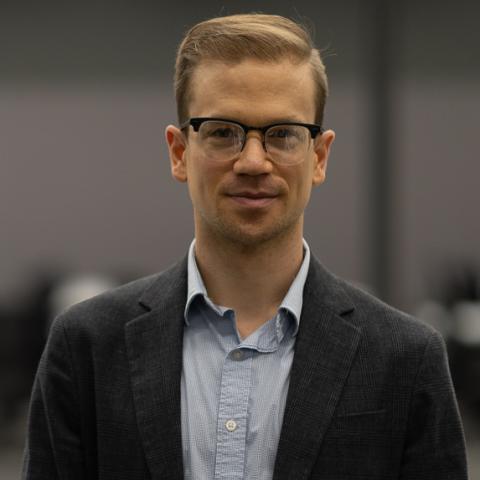
Nick Housley is an Assistant Professor in the School of Biological Sciences at Georgia Tech and a Member of Winship Cancer Institute of Emory University. He earned a BS in Kinesiology from The University of Georgia, a DPT from Georgia State University where he focused on clinical neuroplasticity, a Ph.D. in Applied Physiology from Georgia Institute of Technology and completed his postdoctoral fellowship in Cancer Neurobiology.
Nick started his independent career on the faculty of Georgia Institute of Technology in 2025. The Housley Lab studies how the nervous system, cancer, and its treatment interact in mammalian systems through two overarching themes. First, they perform foundational studies on the role the nervous system plays in the initiation and progression of cancer. Second, they perform multi-scale preclinical studies to define the determinants of neurologic consequences of cancer treatment. In parallel, Housley lead clinical efforts to translate basic science findings to clinical practice.
The Housley lab also develops nanostructures for multimodal applications in solid tumor cancers including drug delivery and cancer detection. A major area of focus involves the use of their nanohydrogel platform to precisely delivery therapeutic payloads to primary and metastatic cancer sites and translate their technology from the laboratory into human clinical studies. My colleagues and I also investigate the interactions of nanostructures and biological environments that enable solid tumor targeting.
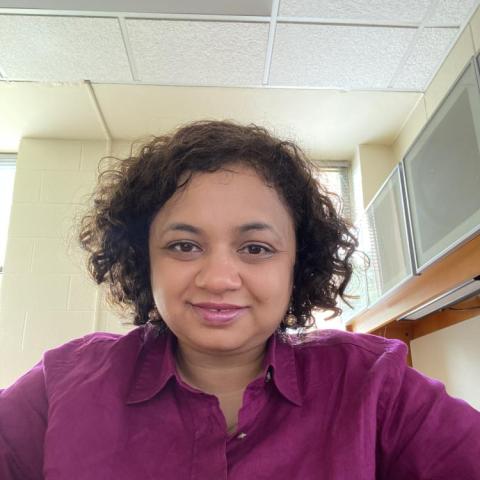
Greeshma Agasthya (she/her/hers) is an Assistant Professor in the Nuclear & Radiological Engineering and Medical Physics Program at the George W. Woodruff School of Mechanical Engineering at Georgia Institute of Technology. She leads the Computational Medical Physics Laboratory, and her research interests are: (1) developing multiscale digital twins for personalized radiation dosimetry for imaging, therapy, and theranostics, (2) modeling and simulations to assess novel radiation protocols from cancer diagnosis to cancer treatment, and (3) developing AI frameworks to model patient trajectories for early intervention and treatment in oncology.
Previously, she was a research scientist at Oak Ridge National Laboratory in the Advanced Computing for Health Sciences section. Agasthya received her doctorate in Biomedical Engineering from Duke University and completed her postdoctoral training at Emory University's Winship Cancer Institute. She has experience in medical imaging research, modeling and simulation for radiation dosimetry, and AI and Machine learning for healthcare. Agasthya has developed and used multi-scale modeling and simulations of the human body for virtual clinical trials, radiation dosimetry, and optimization of medical imaging systems for cancer applications. She has worked on artificial intelligence (AI) for cancer surveillance, predicting disease outcomes, and clinical decision support. She has collaborated with experts in medical physics, radiology, cardiology, computer engineering, and statistics to tackle interdisciplinary challenges in medical physics and biomedical engineering. She has worked on imaging modalities including neutron imaging, x-ray radiography, computed tomography (CT), and tomosynthesis systems for cancer applications.
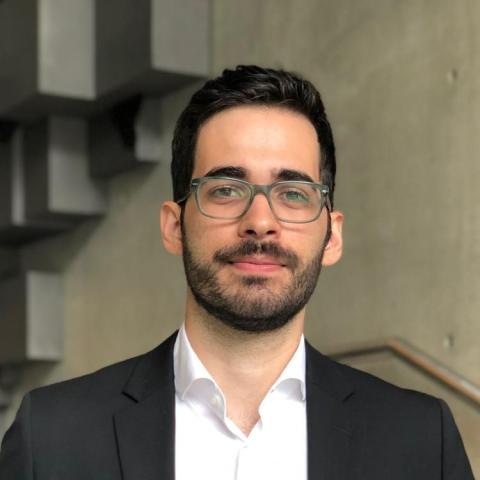
Alexander Vlahos is an Assistant Professor in the Wallace H. Coulter Department of Biomedical Engineering at Georgia Tech and Emory University. Alexander received his B.S. in Biochemistry from McMaster University and his Ph.D. from the University of Toronto under the supervision of Professor Michael Sefton. His Ph.D. work focused on developing an injectable bioartificial pancreas that could be delivered underneath the skin. He then transitioned to mammalian synthetic biology, where he conducted his postdoctoral work as an HFSP long-term fellow at Stanford University with Professor Xiaojing Gao.
His research integrates principles from synthetic biology, protein engineering, and tissue engineering to develop synthetic protein circuits for mammalian cellular engineering. The Vlahos lab synergizes synthetic biology and tissue engineering to create programmable gene and cell therapies for biomedical applications in regenerative medicine, cancer, and autoimmune disease. His lab has three main research themes, including 1) generating protein sensors to sense changes in internal cell states or the external microenvironment, 2) programming engineered cells to model cell-to-cell communication and elucidate the dynamics and expression of key signals that govern fibrosis and immune rejection, and 3) applying synthetic protein circuits to modulate the immune system and improve cell transplantation.
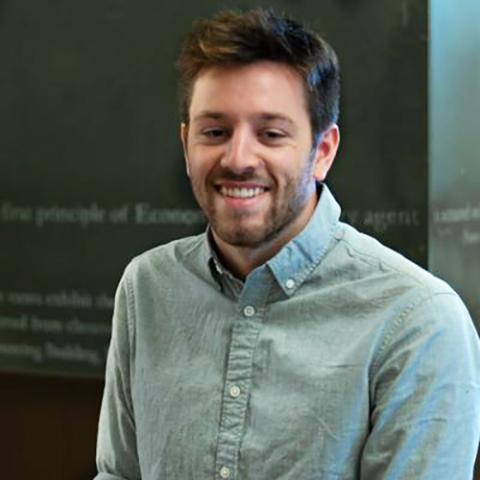
Anthony Harding is an environmental economist with research interests at the intersection of innovative technologies and climate policy. He uses economic theory and applied econometrics to analyze the extent of socioeconomic risks from climate change, how policy and technologies can moderate these risks, and what impacts, intended or otherwise, policies may have. Before returning to Georgia Tech, Harding was a postdoctoral fellow at Harvard University’s Kennedy School of Government. He earned his Ph.D. in Economics from the School of Economics and a B.S. in Mathematics and Physics from Rensselaer Polytechnic Institute.
